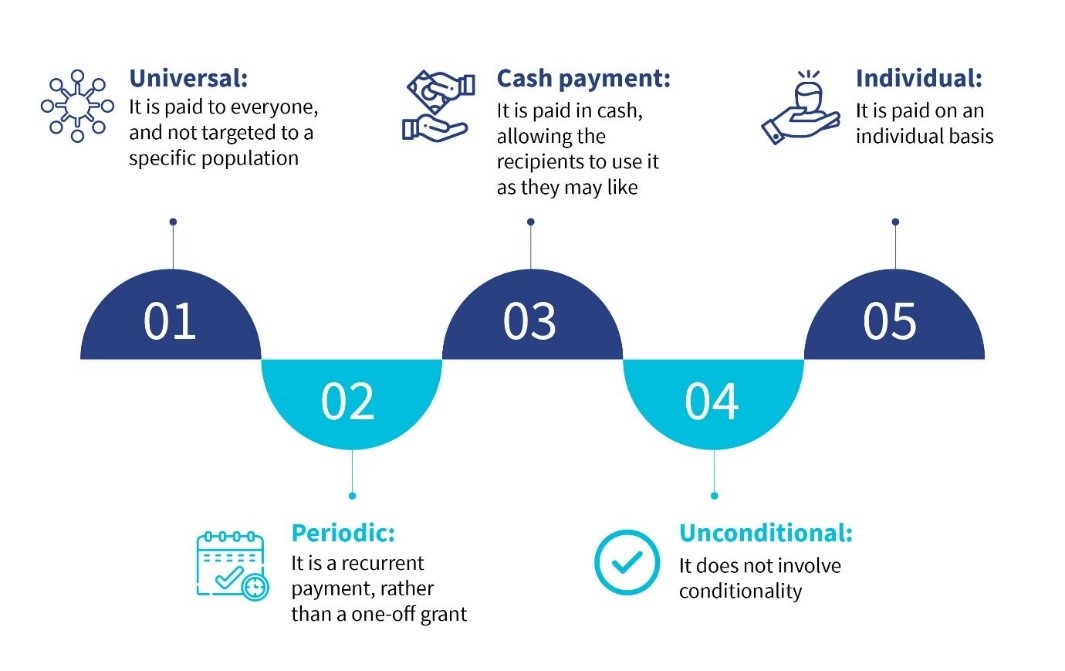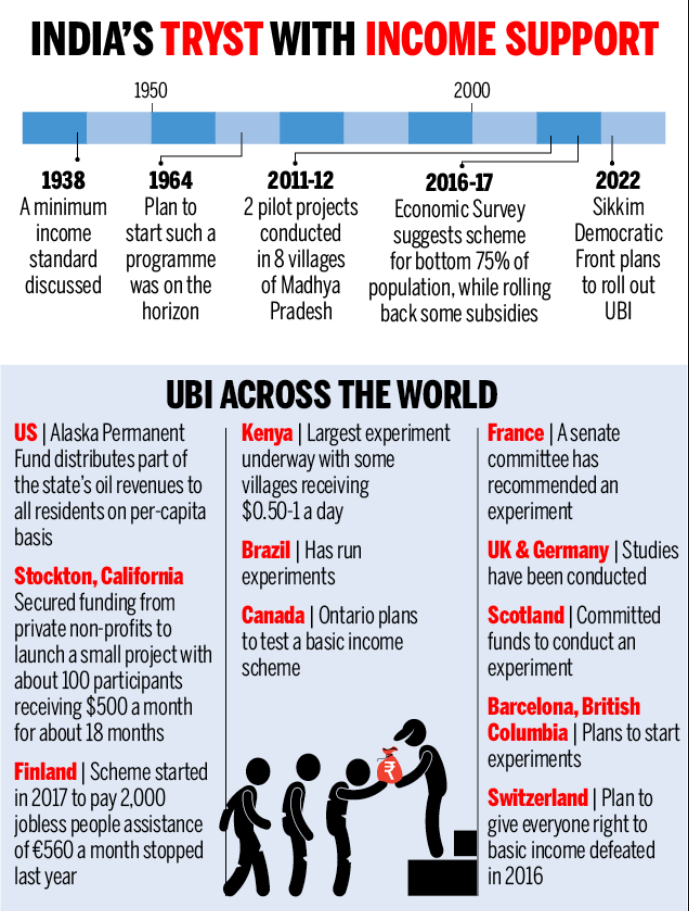900 319 0030
enquiry@shankarias.in
Universal Basic Income (UBI) can strengthen welfare architecture and unlock the nation’s latent demographic potential.

A universal basic income provides a monthly stipend that would ensure that a person would be above the poverty line without any other source of income.
A minimum income guarantee, on the other hand, is at the discretion of the government of the day - it can be equal, more or less than the poverty line expenditure.
The Economic Survey of India suggested a UBI of Rs 7,620 per annum

References